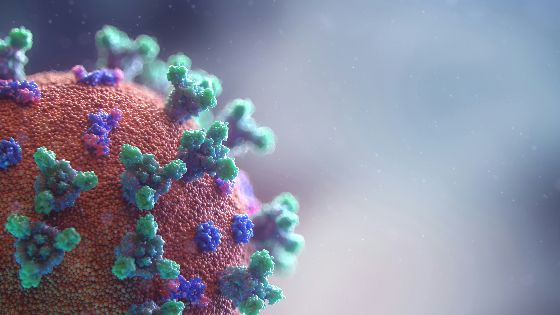
By Rachel McDonald, the Australian Science Media Centre
While experts who stepped up to help communicate health advice during the COVID-19 pandemic played a critical role in keeping Australians safe, a lack of transparency around official decisions slowly eroded public trust, according to the final report from the independent inquiry into Australia’s response to the COVID-19 pandemic released by the federal government on October 29.
The report looks at all aspects of the federal government's response to the pandemic, and identifies nine guiding recommendations to help us better respond to the next pandemic, including improving communications through "effective, tailored, timely, evidence‑rich information sharing from respected and authoritative sources."
AusSMC CEO Susannah Eliott said this inquiry was a rare opportunity to "put the spotlight" on science communication.
"As a Science Media Centre, we know the issues all too well and were heavily involved in ensuring scientists had a prominent voice during the pandemic, sometimes struggling fiercely against inertia and old roadblocks," Dr Eliott said.
"We worked with more than 200 scientists who helped inform at least 55,000 COVID-19 news stories in Australia and overseas and were in awe of the commitment and effort so many experts put into informing the public."
The report found scientists and health experts were the most trusted sources of COVID-19 information during the pandemic at 85%, followed by state/territory governments at 67% and the federal government at 66%.
Dr Eliott said it was important to have scientists who were willing to step into the public eye rapidly, with the first few hours, days and weeks of a crisis, a critical time to establish where the best information is coming from.
"Not only is it a time when the public is desperate for information, it is also a time when anyone wanting to spread conspiracy theories or disinformation will jump in without hesitation. If there is a void because experts and governments have not been able to respond quickly enough then the power of misinformation is amplified as people search for news," she said.
"While many knowledgeable individuals hesitate to speak without complete information, it is better for the public to hear early insights from experts, even if they lack the full picture."
Often the experts who have the most complete information are working directly with governments, and the inquiry found confidentiality agreements with these experts had an "unintended impact" on communication efforts.
AusSMC Director of News and Partnerships Lyndal Byford said this meant many of Australia's top experts were unable to engage fully with the media and the public.
"This fuelled distrust and allowed commentary by everyone except the experts best placed to explain," Ms Byford said.
"Trusted communication relies on openness and we welcome any steps to improve the transparency of the advice that informs government decisions.'
Ms Byford said many experts who chose to step up and become public faces of the pandemic response did so at risk to their own wellbeing.
"It is also important that the report acknowledges the increases in online harassment, bullying, and threats directed at health experts during the pandemic. The report makes clear that this could affect an expert's willingness to publicly engage in a future crisis," she said.
"The AusSMC has recently developed resources to help experts deal with this issue but more must be done to support experts who engage with the media and the public."
One of the scientists who spoke frequently to the public and the media during the pandemic was Associate Professor Sanjaya Senanayake from the Australian National University. He said that while the report shows Australia was not well prepared for the extent of the COVID-19 pandemic, the country managed the initial stages well, but then public trust soon began to wane.
"As the pandemic continued, the perceived lack of transparency about restrictions, and the evidence for them, and the open disagreement amongst State/Territory and Federal leadership, eroded trust," A/Prof Senanayake said.
"Communication about vaccines came from various government sources, and could have been better. And while many of the implemented measures had a positive impact on the pandemic itself, the collateral damage was inequity of the effects of the pandemic on women and Culturally and Linguistically Diverse groups, casualties amongst systems with fundamental problems such as the residential care system, and possibly reduced uptake of vaccines in general."
Dr Eliott said Australia's communication approach did have some strengths, including the Department of Health's regular meetings with independent experts to help those in a position to speak to media to stay informed, and transparent communication about the potential side effects of the COVID-19 vaccines as they were distributed across the country.
"The Science Media Centre would have liked greater communication with government agencies tasked with this communication, but at least no one tried to stop us from doing the work we do," she said.
"We take this freedom for granted because we live in a democratic country, but we mustn’t forget that this is not a freedom enjoyed by all people in all countries."
Read Dr Eliott's full commentary here and the full Expert Reaction here
This article originally appeared in Science Deadline, a weekly newsletter from the AusSMC. You are free to republish this story, in full, with appropriate credit.
Contact: Rachel McDonald
Phone: +61 8 7120 8666
Email: info@smc.org.au